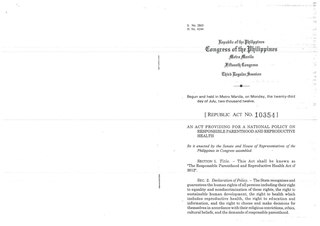
The United Nations Foundation is a charitable organization headquartered in Washington, DC, that supports the United Nations and its activities. It was established in 1998 with a $1 billion gift to the United Nations by philanthropist Ted Turner, who believed the UN was crucial for addressing the world's problems. Originally primarily a grantmaker, the UN Foundation has evolved into a strategic partner to the UN, mobilizing support to advance the Sustainable Development Goals (SDGs), and help the UN address issues such as climate change, global health, gender equality, human rights, data and technology, peace, and humanitarian responses. The UN Foundation's main work occurs through building public-private partnerships, communities, initiatives, campaigns, and alliances to broaden support for the UN and solve global problems. The UN Foundation has helped build awareness and advocate for action on, among others, antimicrobial resistance, regional action on climate change, local implementation of the SDGs, as well as global campaigns such as Nothing But Nets against malaria, the Measles & Rubella Initiative, the Clean Cooking Alliance, Girl Up, Shot@Life, and the Digital Impact Alliance, among others. In March 2020, the UN Foundation was also a key founder of the COVID-19 Solidarity Response Fund on behalf of the World Health Organization (WHO), helping to raise over $200 million USD within the first six weeks to support the global response to the COVID-19 pandemic.

Family planning is the consideration of the number of children a person wishes to have, including the choice to have no children, and the age at which they wish to have them. Things that may play a role on family planning decisions include marital situation, career or work considerations, financial situations. If sexually active, family planning may involve the use of contraception and other techniques to control the timing of reproduction.
Reproductive rights are legal rights and freedoms relating to reproduction and reproductive health that vary amongst countries around the world. The World Health Organization defines reproductive rights as follows:
Reproductive rights rest on the recognition of the basic right of all couples and individuals to decide freely and responsibly the number, spacing and timing of their children and to have the information and means to do so, and the right to attain the highest standard of sexual and reproductive health. They also include the right of all to make decisions concerning reproduction free of discrimination, coercion and violence.

Sexual and reproductive health (SRH) is a field of research, health care, and social activism that explores the health of an individual's reproductive system and sexual well-being during all stages of their life. Sexual and reproductive health is more commonly defined as sexual and reproductive health and rights, to encompass individual agency to make choices about their sexual and reproductive lives.
The International Planned Parenthood Federation (IPPF) is a global non-governmental organisation with the broad aims of promoting sexual and reproductive health, and advocating the right of individuals to make their own choices in family planning. It was first formed in 1952 in Bombay, India, by Margaret Sanger and Lady Rama Rau at the Third International Conference on Planned Parenthood with support of an expanding population with limited resources. Presently, it consists of more than 149 Member Associations working in more than 189 countries. The IPPF is highly developed and organised into six regions. The organisation is based in London, England.

The Population Council is an international, nonprofit, non-governmental organization. The Council conducts research in biomedicine, social science, and public health and helps build research capacities in developing countries. One-third of its research relates to HIV and AIDS; while its other major program areas are still linked to its early foundation in reproductive health and its relation to poverty, youth, and gender. For example, the Population Council strives to teach boys that they can be involved in contraceptive methods regardless of stereotypes that limit male responsibility in child bearing. The organization held the license for Norplant contraceptive implant, and now holds the license for Mirena intrauterine system. The Population Council also publishes the journal Population and Development Review, which reports scientific research on the interrelationships between population and socioeconomic development. It also provides a forum for discussion on related issues of public policy and Studies in Family Planning, which focuses on public health, social science, and biomedical research involving sexual and reproductive health, fertility, and family planning.
MSI Reproductive Choices, named Marie Stopes International until November 2020, is an international non-governmental organisation providing contraception and safe abortion services in 37 countries around the world. MSI Reproductive Choices as an organisation lobbies in favour of access to abortion, and provides a variety of sexual and reproductive healthcare services including advice, vasectomies, and abortions in the UK and other countries where it is legal to do so. It is based in London and is a registered charity under English law.

A female condom is a barrier device that is used during sexual intercourse as a barrier contraceptive to reduce the probability of pregnancy or sexually transmitted infection (STI). It is inserted in the vagina or anus before intercourse to reduce the risk of exposure to semen or other body fluids. The female condom was invented by Danish MD Lasse Hessel in 1990 and approved by the FDA for sale in the US in 1993.
Contraceptive security is an individual's ability to reliably choose, obtain, and use quality contraceptives for family planning and the prevention of sexually transmitted diseases. The term refers primarily to efforts undertaken in low and middle-income countries to ensure contraceptive availability as an integral part of family planning programs. Even though there is a consistent increase in the use of contraceptives in low, middle, and high-income countries, the actual contraceptive use varies in different regions of the world. The World Health Organization recognizes the importance of contraception and describes all choices regarding family planning as human rights. Subsidized products, particularly condoms and oral contraceptives, may be provided to increase accessibility for low-income people. Measures taken to provide contraceptive security may include strengthening contraceptive supply chains, forming contraceptive security committees, product quality assurance, promoting supportive policy environments, and examining financing options.
Population Action International (PAI) is an international, civil society organization that uses research and advocacy to improve global access to family planning and reproductive health care. Its mission is to "advance universal access to sexual and reproductive health and rights through advocacy, partnerships and the funding of changemakers". PAI's headquarters is in Washington, D.C.

DSW is an international private non-profit foundation addressing Sexual & Reproductive Health (SRH) and population dynamics. DSW funds its project and advocacy work from private donations and the financial support of governments, foundations and other organisations. It has its headquarters in Hanover, Germany.
Social franchising is the application of commercial franchising concepts to achieve socially beneficial ends, rather than profit.

Family planning in India is based on efforts largely sponsored by the Indian government. From 1965 to 2009, contraceptive usage has more than tripled and the fertility rate has more than halved, but the national fertility rate in absolute numbers remains high, causing concern for long-term population growth. India adds up to 1,000,000 people to its population every 20 days. Extensive family planning has become a priority in an effort to curb the projected population of two billion by the end of the twenty-first century.

The Responsible Parenthood and Reproductive Health Act of 2012, also known as the Reproductive Health Law or RH Law, and officially designated as Republic Act No. 10354, is a Philippine law that provided universal access to methods on contraception, fertility control, sexual education, and maternal care in the Philippines.
Roots of Health is a nonprofit organization focused on improving the reproductive, maternal and sexual health of women, girls, and their communities in Puerto Princesa, Palawan in the Philippines. Roots of Health is committed to working towards a vision of the Philippines where everyone is empowered to access sexual and reproductive health services free from stigma and discrimination. The organization's three-pronged strategy focuses on clinical services, education, and system strengthening. Roots of Health aims to encourage self-reliance and independence among women, young people and families in Palawan by providing scientifically accurate information on health, along with age-appropriate educational services to change health attitudes and behaviors. Roots of Health also seeks to reduce the incidence of maternal mortality, HIV and promote the importance of preventing teenage pregnancy to help ensure continued education.

Even though there is considerable demand for family planning in Pakistan, the adoption of family planning has been hampered by government neglect, lack of services and misconceptions. Demographics play a large role in Pakistan's development and security since the change from military rule to civilian leadership. Challenges to Pakistani's well-being, opportunities for education and employment, and access to health care are escalated due to the country's continuously-growing population. It was estimated in 2005 that Pakistan's population totaled 151 million; a number which grows 1.9 percent annually, equaling a 2.9 million population growth per year. Though Pakistan's fertility rates still exceed those of neighboring South Asian countries with a total fertility rate at 4.1 and contraception use is lower than 35 percent, approximately one-fourth of Pakistani women wish to either delay the birth of their next child or end childbearing altogether.

Access to safe and adequate sexual and reproductive healthcare constitutes part of the Universal Declaration of Human Rights, as upheld by the United Nations.
Friends of UNFPA is a non-profit organization, headquartered in New York, that supports the work of the United Nations Population Fund (UNFPA), the sexual and reproductive health and rights agency of the United Nations. Friends of UNFPA advances UNFPA's work by mobilizing funds and action for the organization.
Abortion is a controversial topic in Nigeria. Abortion in Nigeria is governed by the two laws that differs greatly depending on geographical location. Northern Nigeria is governed by The Penal Code and Southern Nigeria is governed by The Criminal Code. The only legal way to have an abortion in Nigeria is if having the child is going to put the mother's life in danger. However, sex-selective abortion has long had acceptance in Nigeria.

The status of women in Zambia has improved in recent years. Among other things, the maternal mortality rate has dropped and the National Assembly of Zambia has enacted multiple policies aimed at decreasing violence against women. However, progress is still needed. Most women have limited access to reproductive healthcare, and the total number of women infected with HIV in the country continues to rise. Moreover, violence against women in Zambia remains common. Child marriage rates in Zambia are some of the highest in the world, and women continue to experience high levels of physical and sexual violence.











